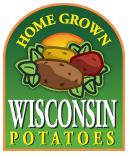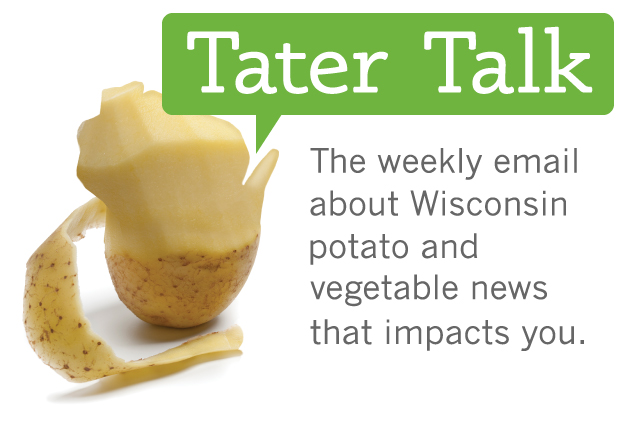IPM – Continuously improving the way we manage pests on our potatoes!
 Integrated Pest Management – or IPM for short – sounds big and combative, but in reality, it is a basic concept that has become a part of the fabric of agriculture that helps farmers limit pest populations (insects, weeds and diseases) and prevent pests from creating havoc in our crops without relying completely on chemical pesticides. In the world of potatoes, Wisconsin growers were early pioneers of biologically-based IPM and are recognized nationally for their adoption of advanced approaches for managing pests in their crops.
Integrated Pest Management – or IPM for short – sounds big and combative, but in reality, it is a basic concept that has become a part of the fabric of agriculture that helps farmers limit pest populations (insects, weeds and diseases) and prevent pests from creating havoc in our crops without relying completely on chemical pesticides. In the world of potatoes, Wisconsin growers were early pioneers of biologically-based IPM and are recognized nationally for their adoption of advanced approaches for managing pests in their crops.
What is IPM and how is it done? As it’s name implies, IPM integrates a wide range of tactics that hold pest populations below damaging levels. These can range from biological and cultural approaches at the local level to regionally-based systems that predict and geographically track pest locations and numbers. It is a basic approach where you get to know everything there is to know about your crop’s pests – where do they come from and when, how do they behave and why, what are their vulnerabilities – and then determine which practices can be best used to exploit these pests and prevent them from entering their crop or causing damage after they do. IPM integrates basic practices such as moving crops in the landscape to make them harder to find, scouting to determine which pests are where, physical barriers to foil entry, tillage and smother crops to limit weeds and predicting pest development with more advanced practices, such as varietal resistance, advanced technologies to diagnose problems quickly and accurately, and using ecologically based processes and geo-referencing to track populations across broad regions. All of these fit under the IPM umbrella, and pesticides are used only when necessary to prevent damage.
IPM is a continuous process—both in the field and in the lab, and continued research is the key to keep ahead of pests. Wisconsin vegetable growers are fortunate to have access to cutting edge research in the IPM area from the University of Wisconsin-Madison. Led by Jed Colquhoun (Department or Horticulture), Russ Groves (Department of Entomology) and Amanda Gevens (Department of Plant Pathology), this vegetable IPM team provides tremendous leadership and is nationally recognized for their research on IPM in vegetable production systems and their work in concert with growers to implement the results.
By using IPM, farmers are able to grow high quality crops, reduce the need for pesticides, and consequently, benefit the environment by providing greater species biodiversity and improved biological control of pests in a more stable ecosystem that protects natural resources. In this next series of blogs, we will discuss current IPM research that is being conducted under the IPM team’s watch, and you will hear from innovative graduate students as they discuss their current research projects. These students will ultimately become the next generation of researchers, and their work is important for our industry and the future of agriculture as we advance IPM.
For more information see:
Vegetable IPM at WI: http://www.plantpath.wisc.edu/wivegdis/
Vegetable Crop Entomology at WI: http://labs.russell.wisc.edu/vegento/
Horticulture Weed Science at WI: http://horticulture.wisc.edu/faculty-and-staff-2/faculty-and-staff/name/jed-colquhoun/

